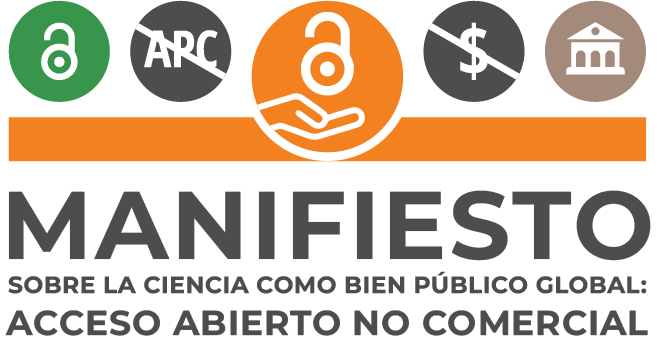Contradictory Functions of Schooling in the Face of Social Inequality
A Systematic Review (2019–2025)
DOI:
https://doi.org/10.59343/yuyay.v5i1.121Keywords:
school, inequality, reproduction, transformation, equityAbstract
This systematic review article examines the contemporary debate on the role of the school in the face of social inequalities, questioning whether it primarily functions as a mechanism for reproducing inequities or whether it can become an agent of social transformation and justice. Drawing on the theories of Bourdieu and Passeron, as well as the Coleman Report, the study analyzes recent literature (2019–2025) that investigates how structural, organizational, and individual factors influence academic persistence and success. The text identifies mechanisms of reproduction such as school segregation, unequal distribution of resources, hidden curricula, and differentiated expectations, all of which contribute to the exclusion of vulnerable groups. Nonetheless, the article also highlights evidence of the school’s transformative potential, especially when inclusive policies, intercultural pedagogies, community participation, and integral approaches to diversity are implemented. The COVID-19 pandemic is analyzed as a turning point that exacerbated pre-existing educational gaps but also opened opportunities to rethink the education system through an ethic of care and a new social contract. The article concludes that the role of the school is not fixed: it depends on the pedagogical and political decisions made by society.
Downloads
References
Ávila Sánchez, R. J., Casas Cárdenas, E., & González Galindo, K. (2023). La escuela como reproductora de desigualdades: La educación de las elites políticas en México. Diálogos sobre educación. Temas actuales en investigación educativa, 14(27). https://doi.org/10.32870/dse.v0i27.1316
Banco Mundial. (2021). Informe sobre los efectos de la pandemia en la educación de América Latina. Banco Mundial.
Bonal, X., & González, S. (2020). The impact of lockdown on the learning gap: family and school divisions in times of crisis. International review of education, 66(5), 635-655. https://doi.org/10.1007/s11159-020-09860-z
Ruiz, S. H. C., & Villasmil, E. J. (2021). Desigualdades sociales e inclusión en educación: experiencias de la resistencia venezolana. Revista Práxis Educacional, 17(45), 376-390. https://doi.org/10.22481/praxisedu.v17i45.8360
CEPAL & UNESCO. (2020). La educación en tiempos de la pandemia de COVID-19. Santiago: CEPAL/UNESCO.
Chmielewski, A. K. (2019). The global increase in the socioeconomic achievement gap, 1964 to 2015. American sociological review, 84(3), 517-544. https://doi.org/10.1177/0003122419847165
CLADE (Campaña Latinoamericana por el Derecho a la Educación). (2020). Desigualdades educativas en América Latina: Tendencias, políticas y desafíos. CLADE/OXFAM/IIPE UNESCO.
Di Virgilio, M. M., & Serrati, P. (2019). Las desigualdades educativas en clave territorial. Buenos Aires: OEI.
Gallegos, M. (2021). La educación virtual sin conectividad aumenta la desigualdad educativa. Cuadernos Fronterizos (México).
Giovine, R., Martignoni, L., & Correa, N. (2019). Estado, escuelas secundarias y organizaciones sociales: una trama socioeducativa para la inclusión de jóvenes en la Provincia de Buenos Aires (Argentina). Práxis educativa, 14(2), 432-450. https://doi.org/10.5212/praxeduc.v.14n2.002
Jacinto, C., Fuentes, S., & Montes, N. (2022). Interrelaciones entre desigualdades sociales y educativas en el nivel secundario. Una revisión teórica, multidimensional y (post) pandémica. Por Claudia Jacinto, Sebastián Fuentes y Nancy Montes. Propuesta educativa, (57), 12-30.
Martínez Rizo, F. (2019). La escuela, ¿gran igualadora o mecanismo de reproducción? La desigualdad social y educativa más de 50 años después de Coleman. Revista Latinoamericana de Estudios Educativos, 49(2), 253–284.
Murillo, F. J., & Carrillo, S. (2020). Segregación escolar por nivel socioeconómico en educación secundaria en Perú y sus regiones. Revista Peruana de investigación educativa, 12(12), 7-32. https://doi.org/10.34236/rpie.v12i12.130
OECD. (2019). PISA 2018 Results (Volume II): Where All Students Can Succeed. Paris: OECD Publishing.
OECD. (2021). The State of School Education: One Year into the COVID Pandemic. Paris: OECD Publishing.
OXFAM. (2019). El poder de la educación en la lucha contra la desigualdad. Oxford: Oxfam International.
Paz-Maldonado, E., Flores-Girón, H., & Silva-Peña, I. (2021). Educación y desigualdad social: El impacto de la pandemia COVID-19 en el sistema educativo público de Honduras. Education Policy Analysis Archives, 29(August-December), 133-133. https://doi.org/10.14507/epaa.29.6290
Puyol-Cortez, J. L., & Santander-Salmon, E. S. (2023). Educación y desigualdad social, sus enfoques sobre políticas educativas inclusivas. Horizon Nexus Journal, 1(1), 35-49. https://doi.org/10.70881/hnj/v1/n1/11
Saforcada, F., Atairo, D., & Trotta, L. (2022). La privatización de la universidad en América Latina y el Caribe. Buenos Aires: CLACSO/IEC-CONADU.
Save the Children. (2021). Build Forward Better: How the global community must act now to secure children’s learning in crises. London: Save the Children.
UNESCO. (2020a). Inclusión y educación: Todos y todas sin excepción (Informe GEM 2020). París: UNESCO.
UNESCO. (2020b). La educación en tiempos de la pandemia de COVID-19. París: UNESCO/CEPAL.
UNESCO. (2021). Reimaginar juntos nuestros futuros: Un nuevo contrato social para la educación. París: UNESCO.
UNESCO-OREALC. (2021). Resultados del ERCE 2019: Logros de aprendizaje y factores asociados. Santiago: Oficina Regional de Educación para América Latina y el Caribe.
UNESCO UIS. (2021). Education in Africa: UNESCO UIS Fact Sheet. Montreal: UNESCO Institute for Statistics.
UNESCO, UNICEF & World Bank. (2021). Estado de la crisis mundial de la educación: Camino hacia la recuperación. Washington, DC: Banco Mundial.
UNICEF. (2020). Are children able to continue learning during school closures? – COVID-19 Remote Learning Factsheet. Nueva York: UNICEF.
Vázquez, E., Nistal, M., & Sáenz Guillén, L. (2024). Segregación escolar. Buenos Aires: Observatorio Argentinos por la Educación.

Published
How to Cite
Issue
Section
Categories
License
Copyright (c) 2025 Gipsy Vanesa Silva-Guadamud, Jéssica de Jesús Plaza-Rodríguez

This work is licensed under a Creative Commons Attribution-NonCommercial-NoDerivatives 4.0 International License.
You are free to:
Share — copy and redistribute material in any medium or format.
- Licensor cannot revoke these freedoms if you follow the terms of the license.
Attribution — You must give credit appropriately, provide a link to the license, and indicate if any changes have been made. You may do so in any reasonable way, but not in a manner that suggests that you or your use are supported by the licensor.
NonCommercial — You may not use the material for commercial purposes.
NonDerivatives — If you remix, transform, or create from the material , you may not distribute the modified material.
No additional restrictions — You may not apply legal terms or technological measures that legally restrict others from making any use permitted by the license.






















